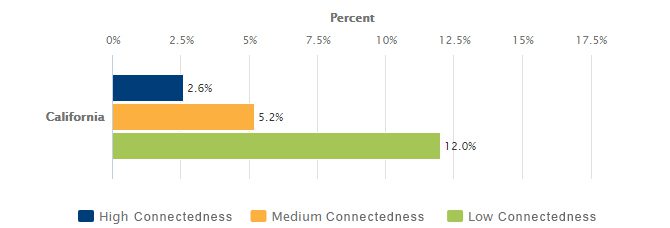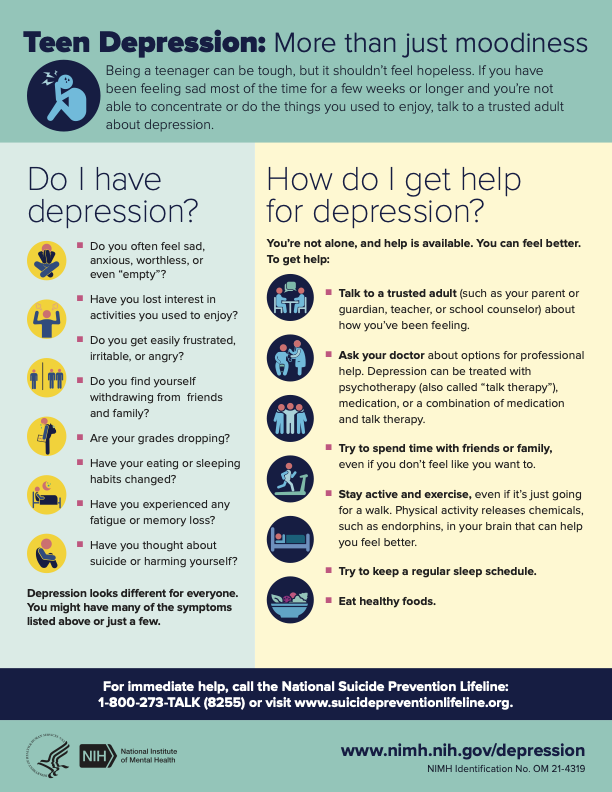Reconnect to Disconnect from Cyberbullying
 One in five California 7th, 9th, and 11th graders were cyberbullied in the previous year, from 2015-2017. Students with low levels of school connectedness were more likely to be victimized online than their more connected peers. There were 12% of California students with low levels of school connectedness who were cyberbullied four or more times, compared to about 3% of those with high levels of school connectedness in grades 7, 9, 11, and non-traditional programs. Ensuring students feel safe and connected to their schools can diminish the prevalence of cyberbullying.
One in five California 7th, 9th, and 11th graders were cyberbullied in the previous year, from 2015-2017. Students with low levels of school connectedness were more likely to be victimized online than their more connected peers. There were 12% of California students with low levels of school connectedness who were cyberbullied four or more times, compared to about 3% of those with high levels of school connectedness in grades 7, 9, 11, and non-traditional programs. Ensuring students feel safe and connected to their schools can diminish the prevalence of cyberbullying.
California Students Who Were Cyberbullied Four or More Times in the Previous Year by Levels of School Connectedness: 2015-2017
Grades 7, 9, 11, and Non-Traditional Programs
Cyberbullying is not as easily detectable as in-person bullying and is a growing concern among teachers and families as more children and youth communicate online and via social media. Cyberbullying can often be an extension of in-person bullying at school, worsening the social and emotional stress on children. According to a study from the U.S. Department of Justice, experiencing a mix of online and in-person harassment had the highest negative emotional impact on children compared to in-person only and online-only incidents.
See more data on how the prevalence of cyberbullying varies by gender, race/ethnicity, and sexual orientation.
Additional Resources
California has enacted laws to address cyberbullying, and state and federal policies provide guidance on effective school discipline strategies. These policies encourage schools to teach students social and behavioral skills and to create positive, supportive school environments to promote school connectedness. StopBullying.gov is a federally funded online resource with a wealth of information on cyberbullying and harassment policies, prevention strategies, and helpful tips on how to address cyberbullying incidents.
Source: KidsData | Reconnect to Disconnect from Cyberbullying , https://www.kidsdata.org/blog/?p=8973 | republished with permission
As cited on www.kidsdata.org, a program of the Lucile Packard Foundation for Children’s Health. Retrieved on November 20, 2019.





